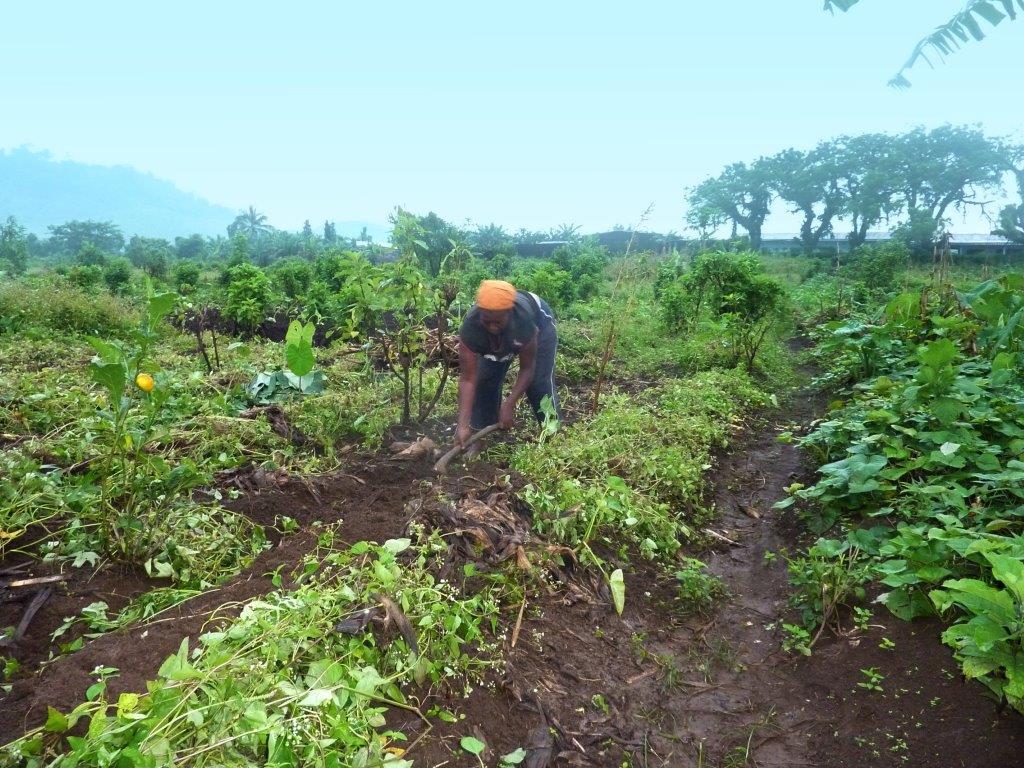By Michel Danleu and Patrick Momba, with translation by Jaff Napoleon Bamenjo, Coordinator, RELUFA, JH Cameroon

Caption: Woman working a family farm in Njombe, Cameroon. Photo courtesy of RELUFA
Nearly 850 million people around the world suffer from malnutrition; Sub-Saharan Africa remains the region hardest hit. In Cameroon, nearly three million people, or 15% of the population, live with hunger; 33 percent of Cameroonian children are malnourished (FAO and World Food Program, 2011). Despite Cameroon’s great potential for economic and agricultural development, the country is struggling to use these potentials to reduce poverty and hunger.
RELUFA, the Joining Hands network in Cameroon, brought together various stakeholders from across the country to problem solve food issues on World Food Day. Family farming was emphasized as an area of hidden potential for development. Ninety-five percent of food products come from family farms and these account for 97% of all farms nationwide. Yet these family farms receive little support from the government, and therefore, face many difficulties ranging from limited access to agricultural inputs, credit and land, etc. Post-harvest losses and limited access to markets also pose major challenges for family farming. Consequently, it is difficult to achieve food self-sufficiency despite the potentials. However, these obstacles are not insurmountable if the state takes action to improve the current situation of family farming.
RELUFA also presented their recently published report, “Emergence without Hunger in Cameroon by 2035: Advocacy for the full realization of the right to food for all in Cameroon,” at the event. The report calls on the Government of Cameroon to recognize and defend the right to food for all, to develop a national strategy on food, to protect against illegal evictions and recognize the land rights of indigenous populations, and to work in partnership with civil society on issues related to the right to food.
![]() You may freely reuse and distribute this article in its entirety for non-commercial purposes in any medium. Please include author attribution, photography credits, and a link to the original article. This work is licensed under a Creative Commons Attribution-NonCommercial-NoDeratives 4.0 International License.
You may freely reuse and distribute this article in its entirety for non-commercial purposes in any medium. Please include author attribution, photography credits, and a link to the original article. This work is licensed under a Creative Commons Attribution-NonCommercial-NoDeratives 4.0 International License.